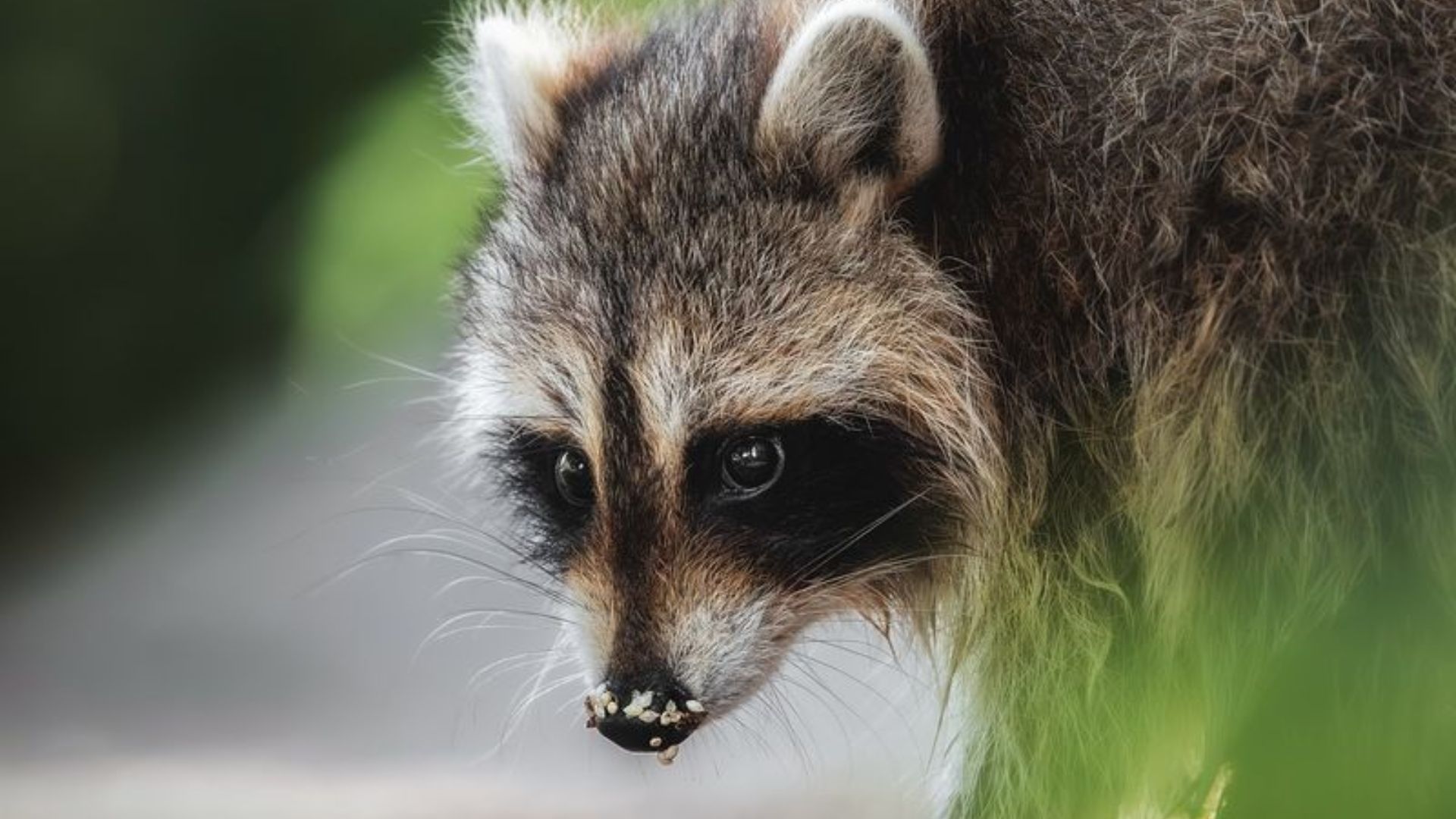Raccoons are curious creatures with a keen sense of smell. They are often drawn to certain scents, which can inadvertently lead them to your yard.
Understanding these scents can help you manage their presence and protect your property. Here are some common strong aromas that raccoons find irresistible.
1. Garbage
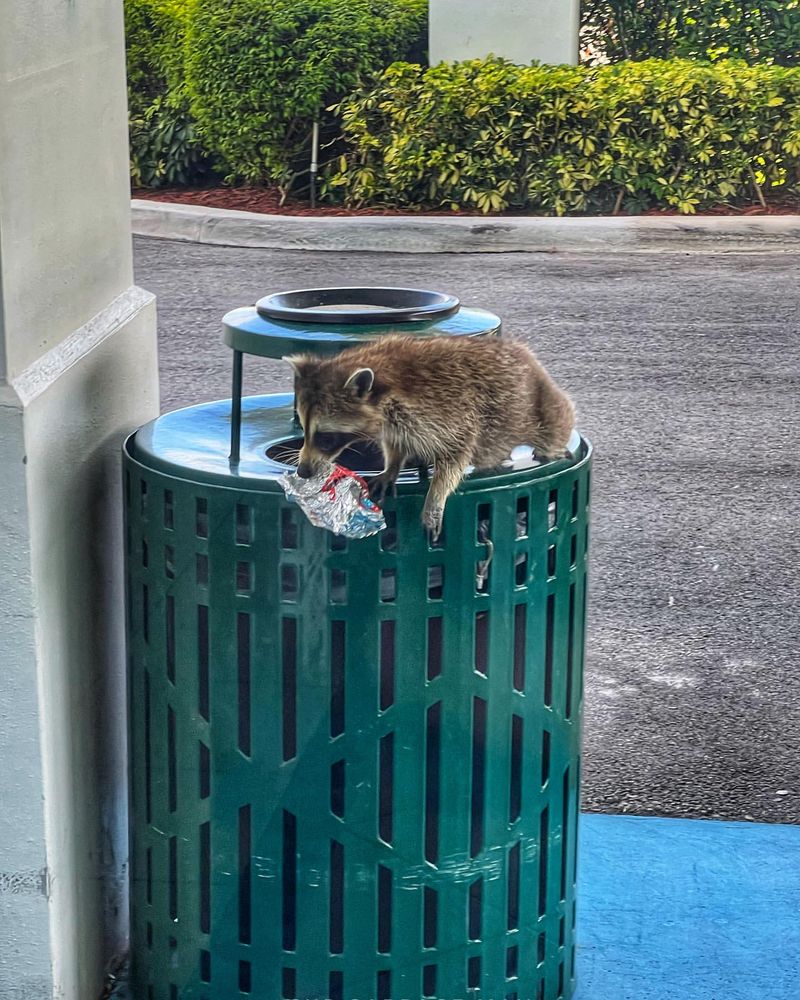
The scent of garbage is a powerful attractant for raccoons due to its diverse and potent odors. Raccoons are omnivorous and opportunistic eaters, always on the lookout for an easy meal.
Trash cans often contain food scraps and leftovers that emit strong smells, drawing these critters in. It’s not just the food itself but the combination of decaying organic matter and food wrappers that intensify the aroma.
In urban and suburban areas, raccoons have adapted to foraging through trash as a part of their natural behavior. The range of scents from different foods and the occasional discovery of high-calorie treats keep raccoons returning to these convenient food sources.
To deter raccoons, it’s essential to secure trash bins with tight-fitting lids and, if possible, store them inside a garage or shed overnight. Regularly cleaning the bins can also help reduce lingering odors that might attract raccoons.
2. Pet Food
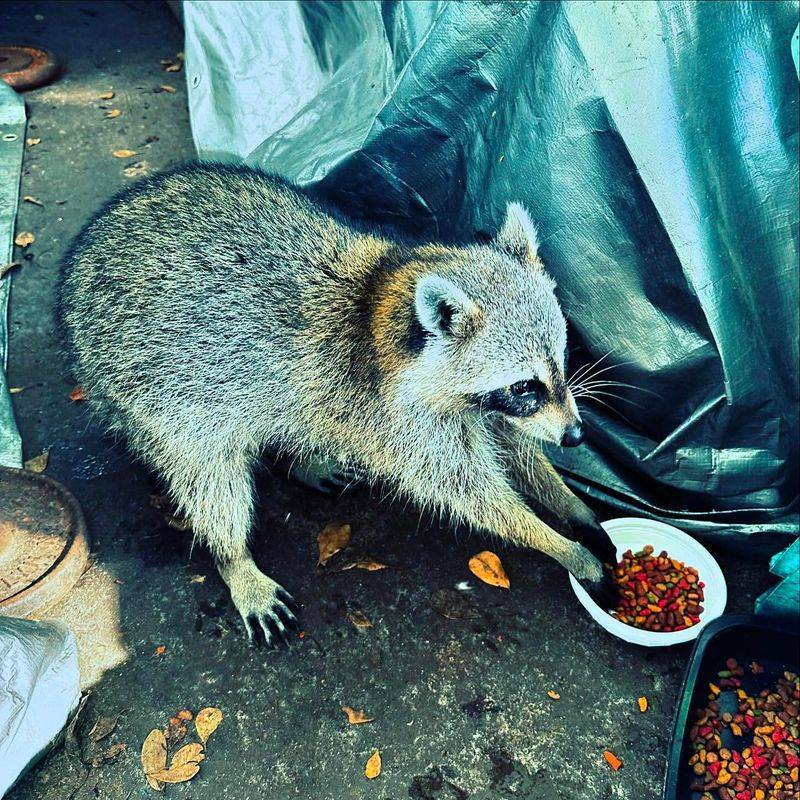
Pet food left outdoors is a magnet for raccoons, with its rich aroma and high nutritional content. Raccoons are particularly drawn to the protein-rich scents found in both dry and wet pet foods, which resemble the natural diet of these nocturnal foragers.
The accessibility of pet food bowls left outside makes it an easy target for raccoons seeking a quick and fulfilling meal.
Raccoons are known to have strong front paws, which they use skillfully to access food containers. This makes it crucial for pet owners to feed their pets indoors or remove any leftover food promptly.
Ensuring that pet food is stored in raccoon-proof containers can further prevent these determined creatures from accessing a free meal.
By managing how and where pet food is stored and consumed, homeowners can significantly reduce the likelihood of raccoons visiting their property.
3. Birdseed
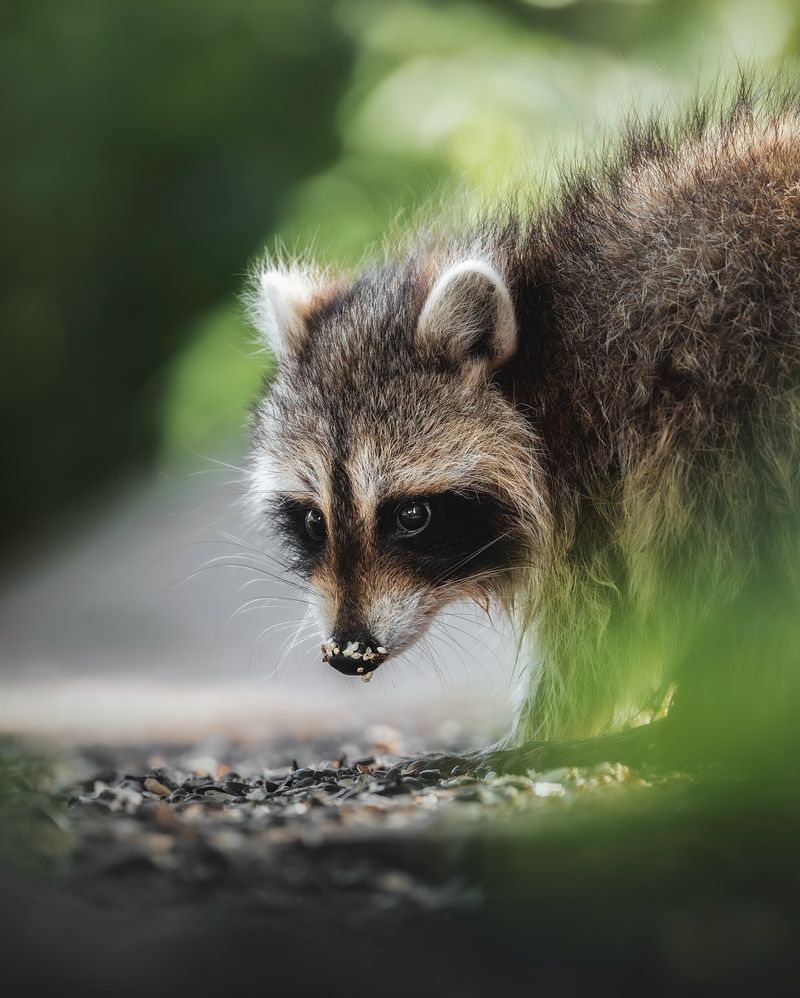
Birdseed is another significant attractant for raccoons, who are always on the hunt for easy food sources. The aromatic seeds, nuts, and grains used in birdseed blends are not only appealing to birds but also to raccoons. The natural oils in seeds contribute to a scent profile that raccoons find hard to resist.
Bird feeders are often placed in easily accessible locations, making them perfect targets for raccoons. As agile climbers, raccoons can effortlessly scale trees and poles to reach bird feeders, even those that seem out of reach. This can be frustrating for bird enthusiasts trying to maintain a raccoon-free feeding area.
To prevent raccoons from accessing birdseed, it’s advisable to use raccoon-proof feeders and position them at least 10 feet away from trees or structures raccoons can climb. Cleaning up spilled seeds regularly can also help minimize the attraction.
4. Fruits

The sweet and fragrant aroma of ripe fruits such as apples, pears, and berries can easily entice raccoons into your yard.
Raccoons have a sweet tooth and thrive on the sugars found in fruits, which provide essential energy and nutrients. Fruit trees and bushes can become a regular stop for raccoons, especially during the harvest season.
Raccoons are adept at climbing and will not hesitate to scale trees to reach hanging fruits. They are also efficient foragers, often spotted collecting fallen fruits from the ground. This behavior can be problematic if you wish to maintain a raccoon-free zone in your yard.
To mitigate this, regularly picking up fallen fruits and considering tree guards or fencing can help keep raccoons at bay. Additionally, securing compost piles where fruit scraps are disposed of can further decrease unwelcome visits.
5. Vegetables

Vegetable gardens can be unwitting buffets for raccoons, whose keen noses can detect the earthy and fresh scents of growing produce. Vegetables like corn, tomatoes, and squash offer a diverse array of smells and tastes that raccoons find irresistible.
The presence of vegetables can turn a quiet yard into a bustling foraging ground for these nocturnal visitors.
Raccoons are intelligent and dexterous, capable of bypassing simple barriers to access the vegetables they crave. This can lead to significant damage in gardens, leaving gardeners frustrated by the loss of their hard work.
Implementing measures such as raised beds, secure fencing, and motion-activated lights can deter raccoons from raiding your vegetable patch. Additionally, harvesting vegetables as soon as they ripen will help minimize the attraction to raccoons.
6. Compost

Compost piles present a complex tapestry of enticing smells that raccoons find hard to resist. As organic materials break down, they release odors that signal a potential food source to raccoons.
The variety of decomposing items, from vegetable scraps to eggshells, creates an aroma that is both pungent and appealing to these scavengers.
Open compost heaps are particularly vulnerable to raccoon raids, as these curious creatures are attracted by both the scent and the promise of hidden treasures. Raccoons are not deterred by the messiness of compost piles and will happily dig through them in search of edible scraps.
To prevent raccoons from turning your compost into a feeding ground, using closed compost bins with secure lids is recommended. Aerating the compost regularly can also help reduce odors and make it less attractive to raccoons.
7. Fish

The strong and distinctive odor of fish can quickly lure raccoons into your yard, especially if it’s left exposed or improperly disposed of. Whether from fishing activities or leftovers, the smell of fish is like a beacon for raccoons seeking out protein-rich meals.
Fish ponds and outdoor fish cleaning stations are common areas where raccoons attempt to satisfy their cravings.
Raccoons are known for their love of aquatic prey, which makes fish an especially attractive target. Their dexterous paws allow them to catch fish from shallow waters, adding to the challenge of protecting fish in outdoor settings.
To deter raccoons, ensuring that fish remains are promptly disposed of and fish ponds are covered during the night can help. Additionally, installing motion-activated sprinklers around fish ponds can startle raccoons and prevent them from getting too comfortable.
8. Meat Scraps
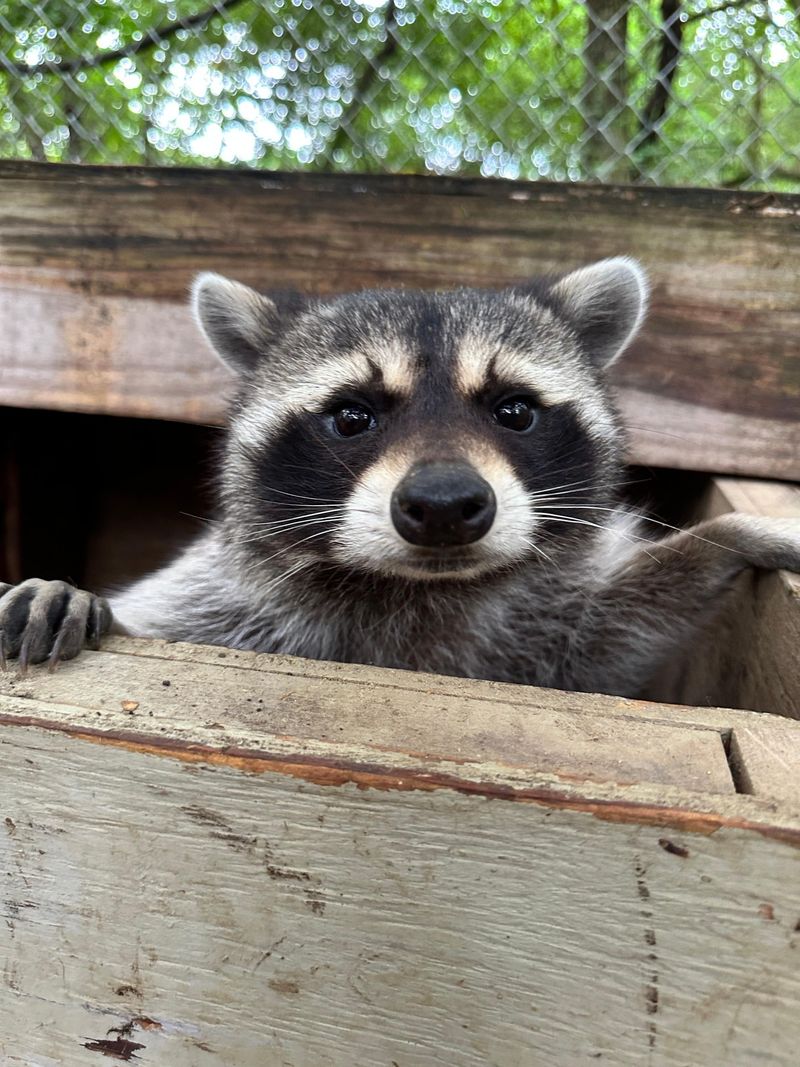
The smell of meat scraps is undeniably alluring to raccoons, who are omnivorous and always on the lookout for protein sources.
Meat leftovers from barbecues or kitchen scraps thrown into the trash can send strong scent signals that raccoons quickly pick up on. This smell can travel significant distances, drawing raccoons from afar to scavenge for a free meal.
Raccoons are clever and persistent, often finding ways to access meat scraps even when they are discarded in supposedly secure trash bins. This can lead to messy scavenging sessions, leaving behind scattered waste and potential conflict with homeowners.
To minimize the attraction of meat scraps, it’s advisable to clean grills thoroughly after use and store meat waste in double-bagged trash or compost bins with locking lids. These steps can significantly reduce the likelihood of raccoons making your yard a regular dinner spot.

